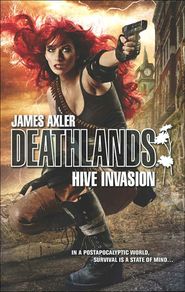По всем вопросам обращайтесь на: info@litportal.ru
(©) 2003-2024.
✖
Baptism Of Rage
Автор
Год написания книги
2019
Настройки чтения
Размер шрифта
Высота строк
Поля
Chapter Three
“Do you remember what it was like to be young, Mr. Tanner?” Daisy asked, as Doc regained his composure and sank into the chair beside her.
Her voice was low, intimate, with a sweet, rich quality like molasses. Her eyes, a shade of blue so light they appeared almost white, peered at him, the tiniest creases appearing at their edges where she smiled. Her mouth was smiling, too. Her wide, flawless teeth were a dazzling shade of white even in the indifferent, gloomy light. Looking at that friendly, inquisitive smile, Doc felt himself drawn to the girl. There was an intimacy here, created by her soft voice, by the half-light of the room, by the wall of noise all around them as other people continued with their meals and conversations, oblivious to the two of them sitting there discussing the nature of youth.
Realizing that the pretty young girl was waiting for him to answer, Doc nodded slowly. “Oh, I remember,” he intoned. “Long summer days, running simply because you could, running until you fell down with giddiness.”
Doc’s head was still nodding, a smile on his lips, as he looked back at Daisy. He would guess that she was perhaps sixteen or seventeen. Her skin was smooth, crinkles forming and disappearing as she flashed that wonderful, dazzling smile at him, the flesh on her cheeks a ruddy pink in the flickering light from the cook’s fire. He looked at her more closely, trying to see the old woman that she had once been. Her face was round, as though she was predisposed to smile for any occasion, a little chubby around the rounded cheeks, dimples appearing as she smiled. She was pretty, but not beautiful. It was the prettiness of youth, Doc realized, of innocence, the way that only a child could be pretty.
Daisy’s hair was long, falling past her shoulders and ending halfway down her back, a cascading wave of silvery-blond. It was fine hair, wispy and prone to tangle, and she would shift the tangled bangs out of her eyes as she spoke, an unconscious movement, long practiced and harboring no sign of irritation.
As Doc watched the girl, Daisy continued to smile at him. “That’s not it,” she said in that slow drawl that didn’t seem to quite form the hard edges of the words, instead mushing them into a flowing sound, like a song. “That’s—what you are talking about—that’s what you think youth was, because you don’t really remember it. You think it was this thing that was all about being a kid, but that’s nothing like what being young is. That thing that you described, that’s what I thought it was before I was—” She stopped, her eyes wandering as though searching for the rest of the sentence.
“Changed?” Doc suggested after a moment’s pause.
“Youngered,” the girl responded. “Like the way I used to get older, so I guess I got youngered by the pool. That make sense to you, Mr. Tanner? You seem like a man o’ learning, is all.”
Slowly, Doc nodded once again, intrigued despite himself. “Youngered it is,” he replied with a smile.
Daisy glanced up for a moment, and Doc followed her glance. She was looking across the table to where Jeremiah Croxton, the aging farmer, sat. He had spread out an old, dog-eared map across the table and was deep in conversation with the person sitting to his right, another outdoors type. When he saw Daisy and Doc looking at him he smiled in acknowledgment before getting back to his cartographical calculations.
When Doc turned back to her, the blonde girl was holding her hand up before his face, palm toward him, fingers upthrust. “Look at my hand, Mr. Tanner,” she said. “Go ’head, it won’t bite none.”
Doc peered at the girl’s pink hand, wondering at the strange request.
“You can touch it, if you want,” she told him encouragingly.
Doc looked at her quizzically. “What am I looking at?” he asked.
“The scars,” Daisy told him, her lips upturned in a smile. “There’s no scars there, not now. I worked the fields for almost sixty years with my father and then with my better half, the lazy good-for-nothing. But the scars have healed, they disappeared. You wouldn’t know that they was ever there.”
“No, you wouldn’t,” Doc agreed, wondering what else he could say, suddenly aware of his own hands, old and wrinkled.
“That’s being young, Mr. Tanner,” Daisy said with certainty. “No scars, no shooting pains deep in your bones fucking with you when the first frost comes. Not running about in the summer, that’s just some—I dunno—song words, troubadour crap. This is being young, Mr. Tanner—” she flexed her fingers before him “—this right here.”
Doc found his eyes following Daisy’s slim hand as she reached for the glass that sat before her on the wooden table. Behind her, and all around, the other members of the wag train were laughing, drinking and eating, watching the tawdry floor show, enjoying themselves.
Daisy took a drink from her glass and Doc was amused to see that it was a swig, a gulp, not the delicate ladylike operation that one might associate with an adult. “You taste this?” Daisy asked, holding the glass out to Doc.
Doc shook his head, waving away the proffered glass. “That’s very kind,” he stated, “but I should really be getting back to my friends.”
“You should taste it,” Daisy encouraged. “Just a little nip. Won’t hurt you none. It hasn’t chilled me,” she said.
Doc took the glass from her and sniffed at its contents. It smelled of sweetness, some blended fruit concoction. Warily, he held the rim of the glass against his lips and tipped it until a tiny dribble of liquid washed past his teeth and into his mouth. “It’s nice,” he assured Daisy, passing the glass back into her waiting hand. “What is it?”
Daisy’s baby blue eyes were watching him intensely, and the fire of challenge colored her words. “You tell me,” she drawled.
“It tastes like…” Doc began thoughtfully. “I’m not sure. Perhaps cantaloupe? Cantaloupe and some spices perhaps?”
As though performing a show, Daisy placed the glass against her lips, all the while watching Doc, her eyes locked on his. Then she closed her eyes and tipped her head back to drink, her neck arching into a beautiful, pale curve of flawless flesh. As Doc watched, Daisy drank the whole glass, her throat bobbing just a little as she swallowed the last of it. Finally, her eyes popped open—still locked on Doc’s—and, licking her lips, she placed the empty glass back down on the table. “Cantaloupe, raspberry, a hint of berry to add tartness,” she told Doc, “and the spice you could taste—that’s the tiniest fleck of cinnamon.”
Doc looked mystified by this performance. “A tasty concoction,” he assured her when it seemed that she was waiting for him to say something.
Daisy leaned forward, bringing her lips close to Doc’s, speaking low despite the hubbub all around them. “That’s what I tasted, Mr. Tanner,” she whispered. “I could tell each of those wonderful tastes in my mouth, savor every last drop. And that’s what it is to be young.”
The girl pulled away, and turned to speak to the person on the other side of her—a man in his midfifties with the haunted expression of a professional chiller. “You mind, Charlie?” she asked. After a moment, the man—Charlie—got up and made his way to the bar counter to order more drinks.
When Daisy turned back to Doc, who was still puzzling over the meaning of her display, she spoke in a less intense manner, friendly and buoyant once more. “You get old,” she explained, “and things die. Parts of you die. Your taste, your hearin’, your eyes, your sense of smell. You lose things, senses, and you don’t never even notice. Because it takes such a long time to happen, you don’t never see it till it’s too late. You go back, you get youngered and it all comes back, Mr. Tanner. It all comes back and you wonder how you ever managed without it, like some cripple who can’t even dress himself. Those stories about being superhuman—they’re not stories. That’s what it is to be young. The longer you live, the less alive you are.”
Doc looked at her, this simple farming girl, old yet young, wondering at her words, marveling at them.
“Giddy,” Daisy continued, “running in the summer until you fall down—that’s not it at all. You just got too old to remember what it’s really like, is all.”
Doc nodded thoughtfully. “I remember now,” he said, “or, at least, I begin to.”
He sat there, lost in his thoughts as Daisy wrapped her delicate fingers over the new glass of fruit punch that had been brought over by the man with the haunted expression. Jeremiah Croxton leaned across to Doc, tapping him gently just below the shoulder. Doc glanced up, and seemed surprised for a second to find himself looking at the man.
“Mr. Tanner,” Croxton began, “I would like to discuss a proposition that I feel would be of mutual benefit.”
Turning to the old farmer, Doc listened intently to the man’s words.
Chapter Four
J.B. peered over Ryan’s shoulder at the pair of wide tables across the other side of the room, where Doc was held in discussion with the people from the convoy. “What the heck is Doc up to?” he muttered, shaking his head in disbelief.
Mildred was just walking across the room to join Ryan and the others, her brow wrinkled with concern. Ryan peered up as her shadow fell across their table. “What’s happening, Mildred?” he asked.
Still standing, Mildred leaned close, keeping her voice low so as not to be overheard, even in spite of the clashing chords emanating from the piano. “Those travelers we helped out invited us all over to offer a few words of gratitude,” she explained.
“Tell them thanks,” J.B. growled.
“The spokesman,” Mildred continued, “that old boy you see there, he says he has a proposition that may interest Doc. Perhaps the rest of us, too.”
Ryan looked nonplussed. “Which is?”
“Search me,” Mildred said lightly. “Seems he wanted to run it by Doc first.”
“What’s your impression?” Ryan asked.
“They seem normal enough,” Mildred stated. “Mostly old folks. Couple of young ones, too, nothing out of the ordinary.”
Krysty was scanning the strangers from her position against the wall. “They’re only lightly armed,” she observed. “Real lightly for traveling folks. Kind of stupe.”
Sitting beside Ryan, Jak nodded. “Not travelers,” he said. “Farmers. Smell it.”
J.B. nodded once in agreement. “Jak’s right, those folks don’t look much used to hard road trekkin’. Probably why they got caught short against those mutie hounds outside.”
Shortly after Mildred had taken her seat, Doc strode to the table, followed by the thin serving girl with the burn scars along her arms. The girl was balancing four steaming bowls on a tray, and she smiled and shook her head as Doc kindly offered her a hand.











